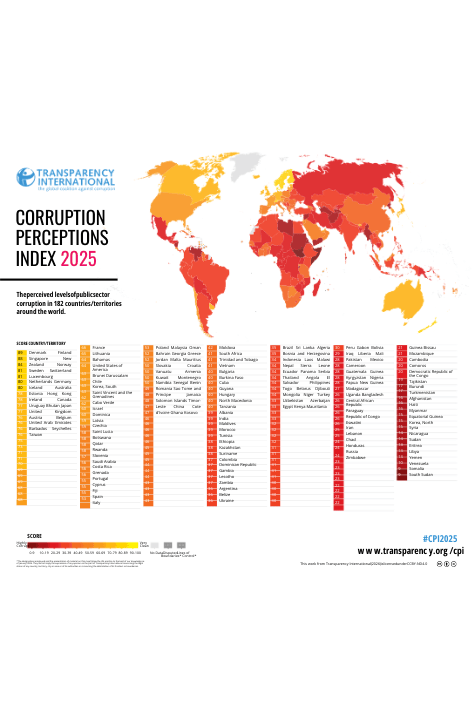Stockholm Chamber of Commerce Launches New Express Dispute Resolution Mechanism
18.06.2021
The Arbitration Institute of the Stockholm Chamber of Commerce ("SCC") has initiated a new alternative dispute resolution mechanism called the SCC Rules for Express Dispute Assessment ("SCC Express Rules"). The SCC Express Rules aim to resolve disputes between parties without full-length arbitration for the sake of time and cost efficiency.
Proceedings will be conducted by a neutral legal expert ("Neutral") appointed by the SCC, who will play an active role during the assessment of a dispute by requesting the necessary information and documents from the parties.
Request and Consent Requirements for the Assessment
First of all, as per Article 2 of the SCC Express Rules, a party to the dispute who is willing to provide an assessment relating to the dispute through the SCC ("Assessment") should present a request to the Board of the SCC ("Board") for the appointment of a Neutral. Upon the delivery of a request, the Board will send the request to the other party and ask for its consent to participate in the procedure. Please note that according to Article 5 of the SCC Express Rules, the Board cannot continue the proceedings without the consent of both parties.
In cases where parties (i) have agreed in a contract that disputes should be resolved by the SCC Express Rules or (ii) agree to submit the dispute to the SCC Express Rules once a dispute arises, no further consent is required from the parties and the Board directly invites the other party to respond to the applicant’s claims.
Appointment of the Neutral
Following the payment of the Neutral’s fee and the administrative fee, to be explained below, the Board is required to appoint a Neutral within 48 hours. As per Article 6 of the SCC Express Rules, the Board is obliged to appoint the Neutral by considering any proposals made by the parties, the nature and circumstances of the dispute, the applicable law, and the nationality and language of the parties.
The Neutral must be impartial and independent and is obliged to disclose any information that may cause justifiable doubts. In cases where one of the parties is of the opinion that the appointed Neutral cannot make an impartial and independent Assessment for reasons such as a conflict of interest, they may submit such claims to the Board in writing. In such cases, the Board will appoint a new Neutral without delay if the claims are found justified.
Pursuant to Article 7 of the SCC Express Rules, the Neutral is required to summarize the issues asserted by the parties for the Assessment and to ask the parties whether they agree to make the findings of the Assessment contractually binding. Furthermore, the Neutral must consider a number of procedural measures such as providing directions to parties on issues addressed in their submissions, limiting the scope and length of written submissions, restricting the use of oral testimony and witness statements, summoning parties to preparatory meetings, and giving parties a preliminary oral assessment of the issues.
Applicable Law
The Neutral will apply the law(s) or rules of law agreed upon by the parties to disputes. In the absence of such agreements, the Neutral will apply the law(s) or rules of law that the Neutral considers most appropriate.
The Findings of the Neutral
Article 2 of the SCC Express Rules stipulates that the findings of the Neutral are not binding. However, the parties may agree to make the findings binding in various ways. The parties may stipulate a clause in their agreement that requires any disputes to be resolved with the SCC Express Rules, and that the findings of the Neutral will be contractually binding on the parties. They may also agree that the findings will be contractually binding during the proceedings. Or, subject to the consent of the Neutral, parties may agree to appoint the Neutral as an arbitrator and to accept the findings as an arbitral award. Additionally, parties may sign a settlement agreement according to the findings of the Neutral.
Period and Costs of Express Dispute Assessment
Article 9 of the SCC Express Rules states that the Neutral will deliver the findings of the Assessment no more than 21 days after the date of appointment. As per the same article, the Board may extend this period upon the Neutral’s request, but such extensions are granted only when there are reasonable grounds.
According to Article 11 of the SCC Express Rules, the costs include the Neutral’s fee of EUR 25,000 and a non-refundable administrative fee of EUR 4,000. These costs and other reasonable expenses of the Neutral will be paid by the parties equally. The party requesting the Assessment will pay the administrative fee at the request date and the Neutral’s fee will be paid before the appointment of the Neutral.
Article 11 of the SCC Express Rules stipulates that, in exceptional cases, the Board may decide to increase or decrease the abovementioned fees having regard to the length of the proceedings, the scope of parties’ submissions, and any other relevant circumstances.
Conclusion
The SCC Express Rules is a dispute resolution mechanism that provides parties with a legal assessment and resolution for their dispute in 21 days with predictable costs.
On the contrary, depending on the complexity of a dispute, arbitration proceedings can be completed in an average of 6-12 months. Moreover, arbitrator and legal fees are generally the largest costs in the proceedings, and these fees may even be higher according to the length of proceedings.
Turkish companies operating abroad include arbitration clauses in their agreements where services and goods are provided at an international level. For such agreements, instead of, or alongside an arbitration clause, adding another clause requiring disputes to be resolved by the SCC Express Rules due to the relatively fast proceedings and more predictable costs should be considered. In other words, this mechanism may be used by Turkish companies as an alternative dispute resolution, as it may enable a fast and cost-effective resolution.
In addition, companies may also request this mechanism after the signing of an agreement. However, there is a risk that the party against whom the findings are made against may not accept them unless the parties have agreed in writing that the findings are deemed to be binding. Therefore, we advise that companies stipulate such clauses in writing before applying to the SCC.
On the other hand, this mechanism is a more appropriate dispute resolution tool for less complex and complicated disputes. Accordingly, there is a risk that the findings may not provide a comprehensive and equitable resolution to disputes that require detailed research, expertise, and examination. For this reason, in such cases, it may be a consideration to add a clause enabling parties to appeal to arbitration if the dispute cannot be resolved by the SCC Express Rules.
Last but not least, parties should investigate whether the Neutral is impartial and independent and has sufficient knowledge and experience of the dispute.
You can read the guidelines regarding the SCC Express here.



